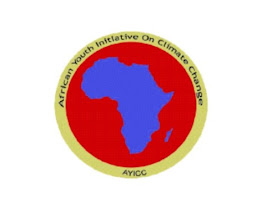CLIMATE CHANGE: THE GENDER DIMENSION
Daniel Wasonga, African Union Youth Volunteer, Ethiopia
The global crisis that climate change has become is already taking its toll on development and less than adequate responses have often contributed to the escalation of its impacts. Meaningful responses have been concentrated more on the scientific and economic solutions than on the significant human aspects such as gender dimensions.
Women and children are known to bear more of the brunt of climate change related events such as floods, heat waves and hurricanes, yet they contribute the least to its causes. They also have the weakest voice in issues concerning climate change policies and responses.
Prior to Rio+20, there were sustained calls to consider and act upon linkages between climate change, sustainable development and gender equality concerns. Practical strategies are still too scarce and uncoordinated to suggest any real headway in this regard. Holistic approaches that address gender and climate change are key to tackling these inter-linkages, which are central to sustainable development. These should be hinged on the significant effects that climate change has on women in particular, and related social consequences.
Policy changes that accommodate innovative gender approaches to climate change have been identified by the UNFCCC process as crucial to achieving progress in the area, owing to the fact that women have been conspicuously absent from decision-making process at all levels. At COP13 in Bali, women comprised only 28% of delegation parties and 12% of heads of delegations. These figures demonstrate how women were shunned from the process and lead to the conclusion that the effectiveness of the negotiations was always going to be limited, as they were predominantly focused on male points of view.
Beyond the fact that men, women, girls and boys have the right to articulate their priorities and participate in decision-making on issues that affect their lives; there is a need for all societal groups to be able to hold decision makers to account, especially with regards to the commitments of leaders to international agreements such as the international Convention on the Elimination of All forms of Discrimination Against Women (CEDAW), which mandates governments to promote women's equal participation in decision-making and public life.
Granted, good efforts on gender and climate change are beginning to be noticed at all levels. However, experts from the different disciplines involved are disjointed in their actions and, consequently, the ability to pool resources, and more creative and effective solutions is lost. Many complexities in human relationships are also largely ignored. Women are often treated as a homogeneous group, when as a group they are highly differentiated according to their social class, access to resources, age and culture among other factors. For instance, in many cultures, women are not involved in decision-making at home and are thus highly unlikely to be consulted on climate change issues at either the micro (family) or public level. The misleading but common portrayal of women as merely victims of the effects of climate change rather than possible agents of positive change has continued to stifle women’s engagement in the matter.
Glaring gaps still exist between research work and gender related practicalities and without thoroughly exploring the opportunities for greater inclusivity, current policies – and the subsequent choices that they enable – may not go far enough. A more dynamic approach is required. One which ensures that the knowledge of both women and men is valued in climate change responses; gender and climate change efforts happen in inclusive ways; human rights, including women’s rights, are at the centre of climate change debates and policies; and that gender analyses and scientific studies inform climate change policy and practice.
With gender equality neither mentioned in the UNFCCC nor in the Kyoto Protocol the gender debate in the climate change discussions is clearly behind schedule. There are no quick fixes here, the only way is to develop and inculcate gender sensitive sustainability principles into the process and encourage as much education on the matter as possible, especially among young people. This is the most sustainable way to ensure progressive developments in climate change adaptation involve women.
http://www.stakeholderforum.org/sf/outreach/index.php/component/content/article/155-cop18day2-women/1119-climate-change-the-gender-dimension

Dan,
ReplyDeleteGreat post and very well articulated.
Gender and climate change. Hmm. Perhaps we have to look at nature (which is very rare when it comes to the policy outlook of things) to see how inculcating a gender perspective to this issue can help resolve the crisis.
Nature rarely has a gender perspective. Infact, Nature is neither male nor female. It is both genders transcended and working in exquisite harmony producing tremendous, awe-inspiring wonder.
Maybe this is what is needed in the climate change arena. A transcending of gender by mimicking how nature uses both polarities (Ying and Yang of life as the Chinese may call it) to create harmony.
Of course we all know Nature is ascribed 'Mother' mainly because it provides more than enough for everyone without asking anything in return except that we share of the abundance - which we've not been able to accomplish at a whole-scale level.
So maybe we need to be motherly, more Ying than Yang to balance the scales at first. Maybe what is required is a return to a matriarchal paradigm where sharing is the underlying principle and not extraction and abandonment.
But wait, this is what we've been upto since the Earth Summit in Rio in 1992. Agenda 21 is an example of brave humanity re-writing the story of our co-existence.
The awareness of the current General Secretary, Ban Ki Moon to insist on inclusivity and accountability (human dignity, equality and equity at the global level) within the formulation of the post-2015 development framework is a step in this direction.
Maybe youth can catch up as well.